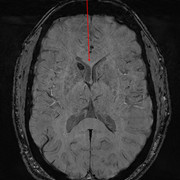musique
Bluelighter
- Joined
- Sep 4, 2017
- Messages
- 84
I'm thinking of starting a good anti-d that doesnt effect cognition or energy. I've read that besides Zoloft which at high dosages can have minimum DRI properties that Prozac can cause robust synthesis of Norepinephrine and dopamine to the pre-frontal cortex due to the 5HT2C antagonist ( unique to most ssri's) component. Does anyone know or have experience as to whether this effect rapidly minimizes once 5HT1, 5HT2 etc reaches full agonist and results in the regular dulling and apathetic effects as all the other SSRI's ?
I know that at 10 mgs~ low dose that the 5HT2C antagonist effects are very high, does this mean that at higher dosages it becomes mitigated and eventually ceases to have this effect?
I appreciate any and all input. thank's in advance
I know that at 10 mgs~ low dose that the 5HT2C antagonist effects are very high, does this mean that at higher dosages it becomes mitigated and eventually ceases to have this effect?
I appreciate any and all input. thank's in advance



